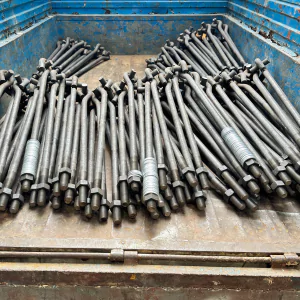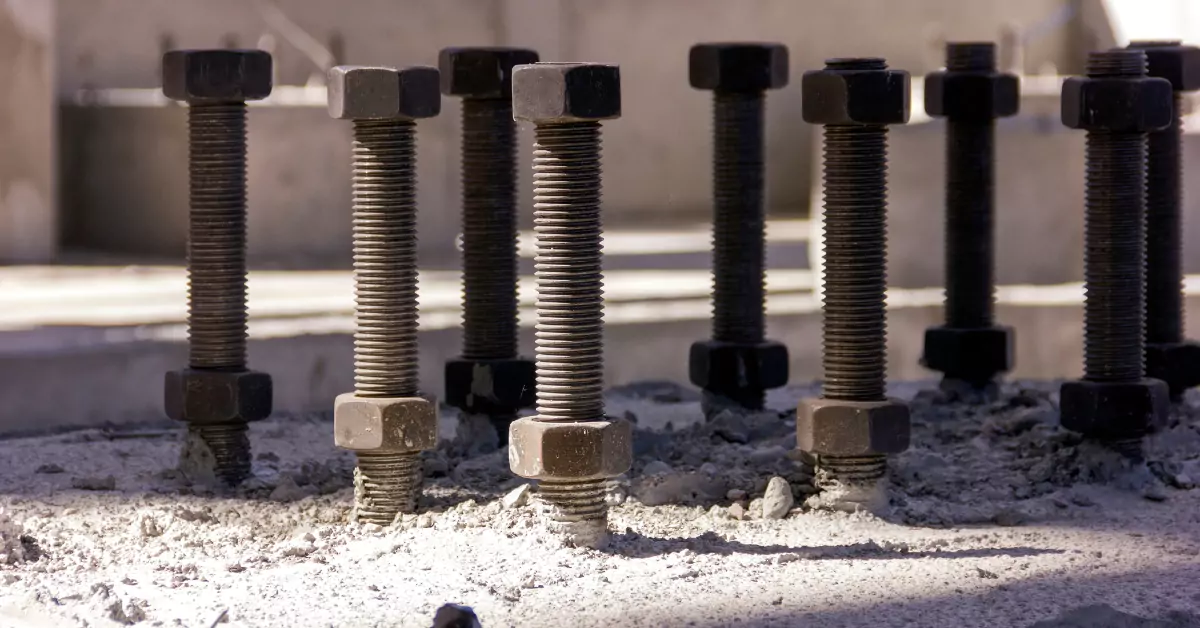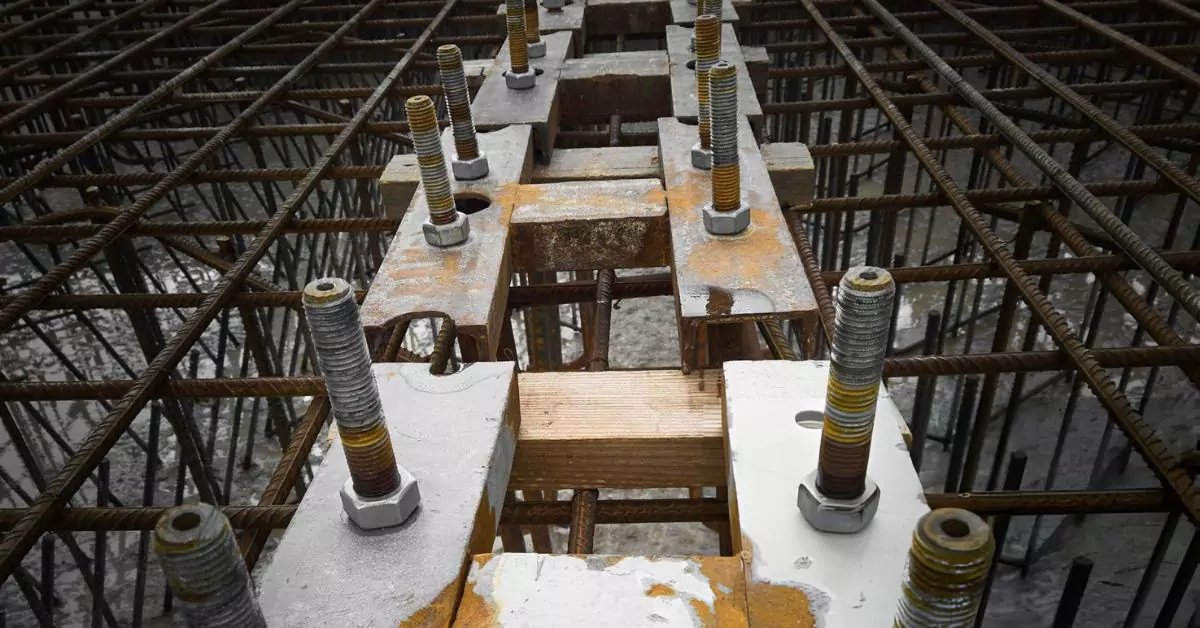Best Foundation Bolts for Industrial Applications
Foundation Bolts serve as the critical link between structures and their concrete foundations, making them essential components in industrial construction. These fasteners must withstand enormous loads, resist environmental stresses, and provide long-lasting reliability in demanding conditions.
Choosing the right foundation bolt can mean the difference between a structure that stands strong for decades and one that experiences costly failures. Industrial applications require bolts that meet stringent standards for strength, durability, and performance under extreme conditions.
Types of Foundation Bolts
Anchor Bolts: Anchor Bolts represent the most common type of foundation bolt used in industrial settings. These bolts are cast directly into concrete during the pouring process, creating a permanent connection between the foundation and the structure above.
The key advantage of anchor bolts lies in their exceptional holding power and cost-effectiveness. They’re particularly well-suited for heavy machinery installations, structural steel connections, and equipment that generates significant vibration or dynamic loads.
Cast-in-place anchor bolts come in various configurations, including straight bolts with nuts and washers, L-shaped bolts, and J-shaped bolts. The choice depends on the specific load requirements and installation constraints of your project.
Sleeve Anchors: Sleeve anchors offer versatility for post-installation applications where cast-in-place bolts aren’t feasible. These expansion-type anchors work by expanding against the sides of a pre-drilled hole in concrete, creating a secure mechanical connection.
Industrial applications often require sleeve anchors when equipment needs to be installed after concrete has cured, or when precise positioning is critical. They’re commonly used for mounting heavy electrical panels, HVAC equipment, and machinery bases.
The main benefits include ease of installation, adjustability, and the ability to remove and relocate equipment when necessary. However, sleeve anchors typically have lower load capacities compared to cast-in-place alternatives.
Chemical Anchors: Chemical anchors, also known as adhesive anchors, use high-strength epoxy or polyester resins to bond threaded rods or bolts into drilled holes. This technology provides excellent load transfer and performs well in both tension and shear applications.
These anchors excel in situations where vibration resistance is crucial, such as seismic zones or applications involving rotating machinery. The chemical bond distributes stress more evenly than mechanical anchors, reducing the risk of concrete cracking.
Chemical anchors also offer superior performance in cracked concrete and provide excellent resistance to fatigue loading. They’re particularly valuable for retrofitting existing structures or when working with challenging concrete conditions.
Factors to Consider
Load Requirements: Understanding the forces your foundation bolts must resist is paramount to selecting the right product. Industrial applications typically involve static loads from equipment weight, dynamic loads from machinery operation, and potential seismic or wind loads.
Calculate both tension and shear forces, including safety factors required by applicable building codes. Consider whether loads are static or cyclic, as repeated loading can significantly impact bolt performance over time.
Don’t forget to account for installation tolerances and potential load redistribution. Some bolts in a group may carry more load than others due to construction variations or equipment settling.
Environmental Conditions: Industrial environments expose foundation bolts to various aggressive conditions that can compromise performance. High temperatures, chemical exposure, moisture, and corrosive atmospheres all affect bolt selection.
Stainless steel bolts offer excellent corrosion resistance but come at higher cost. Hot-dip galvanised carbon steel provides good protection for most applications at a more economical price point.
Consider whether bolts will be exposed to cleaning chemicals, process fluids, or extreme temperature cycles. Some chemical anchor systems may not be suitable for elevated temperatures or specific chemical exposures.
Material Selection: Material choice significantly impacts both performance and cost. Carbon steel provides excellent strength at low cost but requires proper corrosion protection in most industrial environments.
Stainless steel grades like 316 offer superior corrosion resistance, particularly in chemical processing or marine environments. However, the higher cost may not be justified for all applications.
Hot-dip galvanising provides excellent corrosion protection for carbon steel bolts and represents a good balance between performance and cost for most industrial applications.
Choosing the Right Foundation Bolts Solution
The best foundation bolts for industrial use depend on your specific application requirements, environmental conditions, and installation constraints. Cast-in-place anchor bolts typically provide the highest strength and most economical solution for new construction projects.
For existing structures or applications requiring flexibility, sleeve anchors or chemical anchors may be more appropriate despite higher material costs. Chemical anchors particularly excel in high-vibration or seismic applications.
E S HAJI & CO. offers comprehensive foundation bolt solutions designed to meet the demanding requirements of industrial applications. Their expertise in material selection, load analysis, and installation requirements ensures you get the right fastener solution for your project’s specific needs.
Proper selection and installation of foundation bolts is critical for structural safety and long-term performance. Consider consulting with fastener specialists to ensure your foundation bolt choice meets all project requirements and applicable standards.
Foundation Bolts

Looking for the best foundation bolts for industrial applications? This guide covers top types like L-type, J-type, and sleeve anchor bolts, along with key selection factors such as load capacity, material strength, and corrosion resistance. Ensure stability and safety in heavy-duty structures.
Product Brand: Foundation Bolts
Product Currency: INR
Product In-Stock: InStock
5


